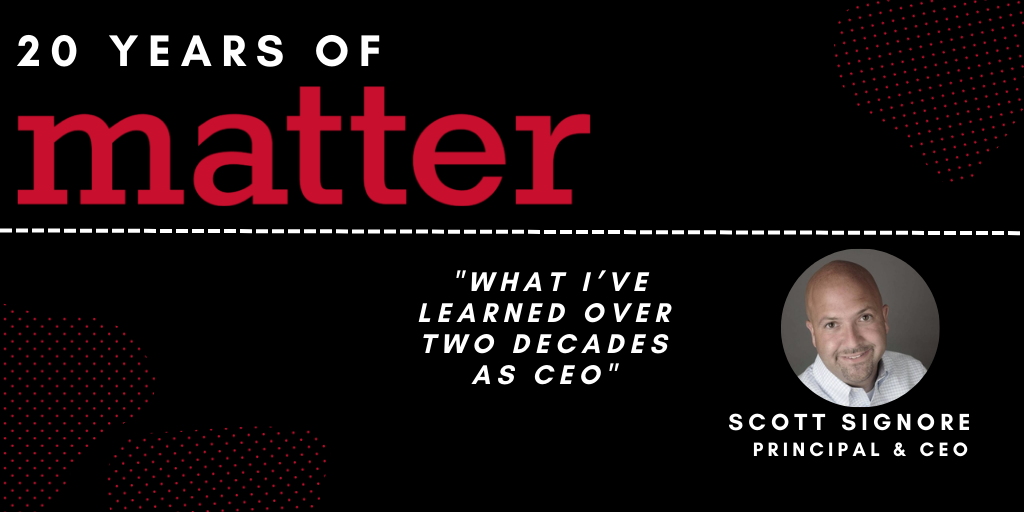This post was originally published in CEOWORLD Magazine.
___
Sales is the lifeblood of every business. Without sales, there is no business.
From a CEO perspective, how can you ensure your sales team consistently stand outs and wins as much business as you need quarter after quarter and year after year?
The overwhelming evidence shows that the inability of salespeople to stand out is a pervasive issue with costly consequences. In looking at surveys with more than 14,500 business-to-business (B2B) decision makers on deals above $100,000 across multiple industries globally, buyers saw no difference between vendors 42 percent of the time, leading to average win rates of a dismal 17 percent globally. I call this phenomenon the Surprisingly Average.
What’s going wrong?
Until now, there have been lots of questions and rarely any helpful answers. Certainly, the sales environment has only intensified in the past decade. COVID-19 massively accelerated the tectonic shift from live to virtual (i.e., live-online) selling. In the live-online world, the classic techniques of selling are much less effective, sales pipelines are languishing, and the look and feel of buyer/seller interactions is very different. It’s harder and harder for buyers to tell the difference between one salesperson’s offerings and another’s. Everyone looks and sounds the same. Competition is intense. As a result, many salespeople are having a hard time getting first meetings, are conducting plenty of additional meetings that go nowhere, and are simply not winning enough business.
How Can Sellers Stand Out?
The primary question today is: How can your sales team stand out as different and better when the competition is at such a high level?
Consider that your sales team, regardless of the industry, is likely working with similar technology, approaches, people, and methodologies. In fact, your team is solving similar problems, with similarly long lists of client references with claims on the same outcomes. Again, your team appears to be remarkably similar to your competitors, therefore surprisingly average.
But clients make decisions based on differences, not similarities. Your sales team must demonstrate differences that matter to the client.
Appearing in contrast to their competitors isn’t news to sales professionals. They know they need to create this contrast, but they struggle to define “contrast” in a way that helps clients act on it.
My colleagues and I had a unique opportunity over a six-year period to spend hundreds of hours with C-suite executives discussing, debating, testing, and learning together how salespeople could become Strikingly Different.
After observing nearly two thousand sales interactions between sales teams and C-suite executives, we discovered a simple formula for achieving compelling contrast that thousands of salespeople are successfully using to stand out and sell more.
RELEVANT + DISTINCT + MEMORABLE (or RDM) = STRIKINGLY DIFFERENT
Relevant means focusing on what matters most to the client.
Distinct means showing something that’s different and better.
Memorable means making your message easy to share and hard to forget.
Seeing the world through the RDM lens will change how your salespeople see themselves, their clients, and every sales opportunity. RDM is brought to life in the six skills described below.
The 6 Vital Skills Top Sales Performers Use to Stand Out and Sell More
Skill 1: Capture Attention with a Verbal Billboard – Use a verbal billboard. It’s the core message for the client. Think and speak in headlines, link to the client’s goals and issues, and show ‘From-To’ client outcomes. Ensure your billboard tells an easy-to-follow story that is compelling, easy to share and hard to forget.
Skill 2: Create Excitement with Movie Trailers – Use movie trailers (brief verbal/written communication) to excite the client or prospect to want to meet with you; intrigue them at the start of the meeting or proposal, so they actively engage in a peer-to-peer dialogue with you; and end the meeting with increasing momentum, earning you an invitation for another meeting.
Skill 3: Build Confidence with Flashbacks and Flashforwards – Use flashbacks (success stories) on how you’ve helped other clients by vividly and succinctly sharing how a similar client’s outcomes were different and better than what they were previously doing, thanks to your experience in partnering on a solution. Use flashforwards to paint an exciting vision of future events and critical milestones to get to a successful outcome.
Skill 4: Become Essential with “Why Us!” Differentiators – Use differentiators to highlight unique differences to help the client see why those differences matter. Include a point of comparison for each difference; briefly describe a unique aspect of what you do that will make a real difference to the client; and explain why each difference will help the client achieve different and better outcomes.
Skill 5: Get Curious and Find the Gaps – Discover gaps in the sales process by structuring a conversation to deepen your understanding. Conduct a critical discovery dialogue that identifies the client’s real needs, issues, and motivators. Find messaging gaps by shifting conversations from you talking about your solution to mutual exploration of business problems or results the client is trying to solve or achieve.
Skill 6: Navigate Traffic Lights and Close the Gaps – Navigate through client questions, pushbacks, challenges, objections and concerns and resolve them with empathy. Engage in real human-to-human dialogue to close gaps and complete the sales process.
These skills will help your sales team use the power of contrast to win more deals by focusing on what matters most to your clients, showing them something different and better, and making every message “sticky”: easy to share and hard to forget.
The Strikingly Different formula and the six skills will change how your sales team thinks, what they say, and what they do, resulting in shorter sales cycles, better opportunities, stronger client relationships, and bigger results. Your team doesn’t need to be perfect to get remarkable results. They just need to be directionally correct. Small changes make a big difference. Good luck on the journey.
___



